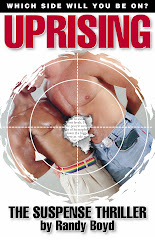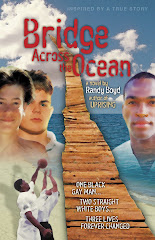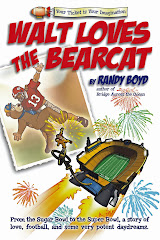
What does gay mean? Does gay describe a person’s sexual orientation? Does gay describe an individual’s behavior in bed? Out of bed? What do people think when they hear the word gay, or that someone is gay? What images come to mind? What assumptions? Are they accurate? Whose point of view do these images reflect?
Chances are, the images and behavior that come to mind are far from universally accurate. Chances are, the world’s perception of gay is based on the images and behavior the media and its audience have deemed acceptable for consumption.
Chances are, the world’s perception of gay is based on the images and behavior the media and its audience have deemed acceptable for consumption.
Unfortunately, these images are usually limited to stereotypes that render the audience comfortable yet unthreatened. The result is a narrowly cast point of view on what it means to be gay, which leads to terms like gay networks, gay programming, gay audiences, gay people, gay behavior, much in the same way the media talks about urban shows for urban audiences.
Trouble is, on the way to becoming a marketing term, and a way for a younger generation to describe something they don’t favor as “that’s so gay,” some of us who used to use the word gay to simply communicate our sexual desires have been feeling a little less gay about being gay, because gay, which use to mean happy, then came to mean homo, is now something altogether different, which doesn’t make this gay man very gay at all.
gay,” some of us who used to use the word gay to simply communicate our sexual desires have been feeling a little less gay about being gay, because gay, which use to mean happy, then came to mean homo, is now something altogether different, which doesn’t make this gay man very gay at all.
Confused? Tell me about it! It just so happens, we have a clip today from my novel, Walt Loves the Bearcat, where the main character deals with “this whole gay thing” much better than I'm doing right now … Roll Clip!
Chances are, the images and behavior that come to mind are far from universally accurate.
 Chances are, the world’s perception of gay is based on the images and behavior the media and its audience have deemed acceptable for consumption.
Chances are, the world’s perception of gay is based on the images and behavior the media and its audience have deemed acceptable for consumption.Unfortunately, these images are usually limited to stereotypes that render the audience comfortable yet unthreatened. The result is a narrowly cast point of view on what it means to be gay, which leads to terms like gay networks, gay programming, gay audiences, gay people, gay behavior, much in the same way the media talks about urban shows for urban audiences.
Trouble is, on the way to becoming a marketing term, and a way for a younger generation to describe something they don’t favor as “that’s so
 gay,” some of us who used to use the word gay to simply communicate our sexual desires have been feeling a little less gay about being gay, because gay, which use to mean happy, then came to mean homo, is now something altogether different, which doesn’t make this gay man very gay at all.
gay,” some of us who used to use the word gay to simply communicate our sexual desires have been feeling a little less gay about being gay, because gay, which use to mean happy, then came to mean homo, is now something altogether different, which doesn’t make this gay man very gay at all.Confused? Tell me about it! It just so happens, we have a clip today from my novel, Walt Loves the Bearcat, where the main character deals with “this whole gay thing” much better than I'm doing right now … Roll Clip!
No Longer a Homo
from "Walt Loves the Bearcat"“In my dreams, we did great things and stood by one another like warriors united,” said Marcus to the audience at the writer’s conference. “That was my dream for this gay community, but it’s a  dream unfulfilled. This ‘gay’ community I see in the early part of the 21st century is nothing that I can personally identify with or relate to. Somebody hijacked the word gay. Now it means you’re a Queer Eye Guy, or Will or Grace. If that’s what being gay is, I’m no longer a homo.”
dream unfulfilled. This ‘gay’ community I see in the early part of the 21st century is nothing that I can personally identify with or relate to. Somebody hijacked the word gay. Now it means you’re a Queer Eye Guy, or Will or Grace. If that’s what being gay is, I’m no longer a homo.”
Murmurs of approval filtered through the audience.
“Not knocking anyone,” said Marcus. “We all should be who we are. But when I signed on to this whole gay thing, I did so with the understanding that it was an easy way to convey to the world my number one draft pick for the gender of my sex partners and eventual love of my life, nothing else.”
Laughter replaced the murmurs.
“Sex life and love life were the only things I signed up for,” said Marcus. “No behavioral tendencies, no special icons and divas, no particular clothes or labels or activities or lifestyle—although I must say, I’ve probably tried them all on for size in the name of finding who I really am. And this is who I really am: the only reason I’m gay is because there are certain things about a man that I don’t wanna live without. Daily, preferably. The first of those is another man’s soul. After that, everything else is details. That’s the only reason I check gay on the census form, so to speak. And as far as labels, I learned a long time ago to let ’em go. So the Queer Eye Guys can keep gay. And I hope all their dreams come true, just like mine. But I’ll just say ... I’m sexual ...”
Daily, preferably. The first of those is another man’s soul. After that, everything else is details. That’s the only reason I check gay on the census form, so to speak. And as far as labels, I learned a long time ago to let ’em go. So the Queer Eye Guys can keep gay. And I hope all their dreams come true, just like mine. But I’ll just say ... I’m sexual ...”
Silence ensued in the room, as if time were momentarily suspended.
“Thank you very much. Enjoy your weekend,” concluded Marcus.
“Uh, excuse me,” said the dark-haired lesbian at the podium. “Just exactly how does this relate to the topic at hand: Why Gay America Cares About Gay Literature?”
to the topic at hand: Why Gay America Cares About Gay Literature?”
Marcus collected himself. “Because this new gay world does not care about gay literature. How many here today tell people you write gay lit, and they automatically assume you do porno? Yeah, see, if I had a dollar for every hand in the air right now, I could afford to stay at this hotel on a regular weekend. This new gay world doesn’t care about gay literature because, even though we have great stories, they don’t have pretty pictures, like all the other sources for gay media.” Then it dawned on Marcus for the very first time. “We’ve got to give them pretty pictures!” He folded his hands and cracked his knuckles. “Then all of America will care,” said Marcus, smiling at the dark-haired lesbian, who still didn’t seem convinced.
“Perhaps we’ll leave that discussion for the Q&A,” she said, sounding quite bewildered.
Excerpt from Walt Loves the Bearcat, the sports epic that dares to dream.
More excepts from Walt Loves the Bearcat
 dream unfulfilled. This ‘gay’ community I see in the early part of the 21st century is nothing that I can personally identify with or relate to. Somebody hijacked the word gay. Now it means you’re a Queer Eye Guy, or Will or Grace. If that’s what being gay is, I’m no longer a homo.”
dream unfulfilled. This ‘gay’ community I see in the early part of the 21st century is nothing that I can personally identify with or relate to. Somebody hijacked the word gay. Now it means you’re a Queer Eye Guy, or Will or Grace. If that’s what being gay is, I’m no longer a homo.”Murmurs of approval filtered through the audience.
“Not knocking anyone,” said Marcus. “We all should be who we are. But when I signed on to this whole gay thing, I did so with the understanding that it was an easy way to convey to the world my number one draft pick for the gender of my sex partners and eventual love of my life, nothing else.”
Laughter replaced the murmurs.
“Sex life and love life were the only things I signed up for,” said Marcus. “No behavioral tendencies, no special icons and divas, no particular clothes or labels or activities or lifestyle—although I must say, I’ve probably tried them all on for size in the name of finding who I really am. And this is who I really am: the only reason I’m gay is because there are certain things about a man that I don’t wanna live without.
 Daily, preferably. The first of those is another man’s soul. After that, everything else is details. That’s the only reason I check gay on the census form, so to speak. And as far as labels, I learned a long time ago to let ’em go. So the Queer Eye Guys can keep gay. And I hope all their dreams come true, just like mine. But I’ll just say ... I’m sexual ...”
Daily, preferably. The first of those is another man’s soul. After that, everything else is details. That’s the only reason I check gay on the census form, so to speak. And as far as labels, I learned a long time ago to let ’em go. So the Queer Eye Guys can keep gay. And I hope all their dreams come true, just like mine. But I’ll just say ... I’m sexual ...”Silence ensued in the room, as if time were momentarily suspended.
“Thank you very much. Enjoy your weekend,” concluded Marcus.
“Uh, excuse me,” said the dark-haired lesbian at the podium. “Just exactly how does this relate
 to the topic at hand: Why Gay America Cares About Gay Literature?”
to the topic at hand: Why Gay America Cares About Gay Literature?”Marcus collected himself. “Because this new gay world does not care about gay literature. How many here today tell people you write gay lit, and they automatically assume you do porno? Yeah, see, if I had a dollar for every hand in the air right now, I could afford to stay at this hotel on a regular weekend. This new gay world doesn’t care about gay literature because, even though we have great stories, they don’t have pretty pictures, like all the other sources for gay media.” Then it dawned on Marcus for the very first time. “We’ve got to give them pretty pictures!” He folded his hands and cracked his knuckles. “Then all of America will care,” said Marcus, smiling at the dark-haired lesbian, who still didn’t seem convinced.
“Perhaps we’ll leave that discussion for the Q&A,” she said, sounding quite bewildered.
Excerpt from Walt Loves the Bearcat, the sports epic that dares to dream.
More excepts from Walt Loves the Bearcat





























